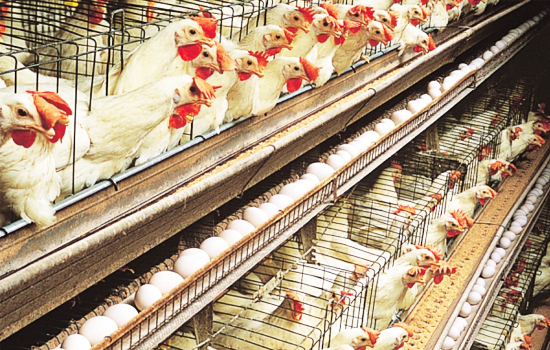Disease Management of layer Management in Summer
- font size decrease font size increase font size
In order to improve the level of control and effectively optimize the efficiency of summer laying hens, in addition to improving nutrition management and feeding management, layer chicken cages should also be used for centralized control. The disease treatment is carried out in a concentrated manner to improve the disease resistance of the laying hens, thereby effectively increasing the yield and quality of the culture.
1. Farmers should actively implement environmental sanitation principles and disinfection work.
Since the hot summer is a high-risk season for the growth of microorganisms and germs, farmers are required to carry out centralized control and comprehensive treatment. It is necessary not only to ensure that the environmental sanitation work meets the requirements, but also to thoroughly clean the feces and foreign bodies in a timely manner, and to ensure that the feces are swept 2 to 3 times a day. In terms of disinfection measures for chicken houses, it is necessary to strictly follow the standardized disinfection mechanism.
The first is to timely clean and disinfect the feeding tools;

Secondly, it is necessary to replace the disinfectant drugs regularly to improve the disinfection level and ability;
Finally, the collected feces should be treated centrally, discarded to a designated location for stacking fermentation or pollution-free treatment, reducing the impact of undesirable parasites on laying hens.
2. In the hot season, the farmers should also pay attention to the vaccination work of the laying hens, especially in the half year after the laying hens are started, it is necessary to concentrate on strengthening the epidemic prevention work, especially for diseases such as chicken laryngotracheitis and chicken pox. Personnel must do a good job in epidemic prevention control.
In addition, it is necessary to carry out centralized treatment and comprehensive prevention and treatment of chicken coccidiosis. When spraying insects in time, adding chlorpheniramine and oxytetracycline to the feed reduces the risk of infectious diseases and further improves the ability of laying hens to resist parasites.
All in all, in the process of using chicken battery cages for the management of laying hens in the hot season, it is necessary to comprehensively consider the environmental factors, effectively adjust the feed intake and feed quality, ensure the clean and ventilated interior of the house, do the epidemic prevention work, and reduce the heat of the hens. Stress, thus improving the management level of the chicken house, meeting the requirements of farmers for economic benefits, and laying the foundation for the sustainable development of chicken farming projects in various regions.

